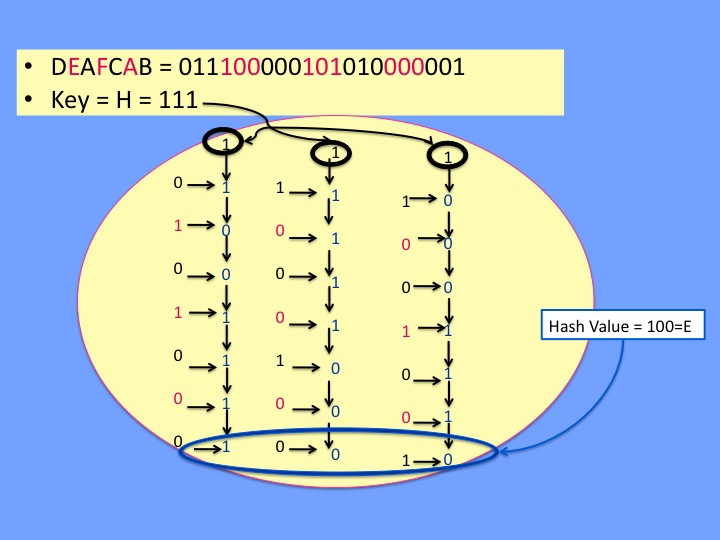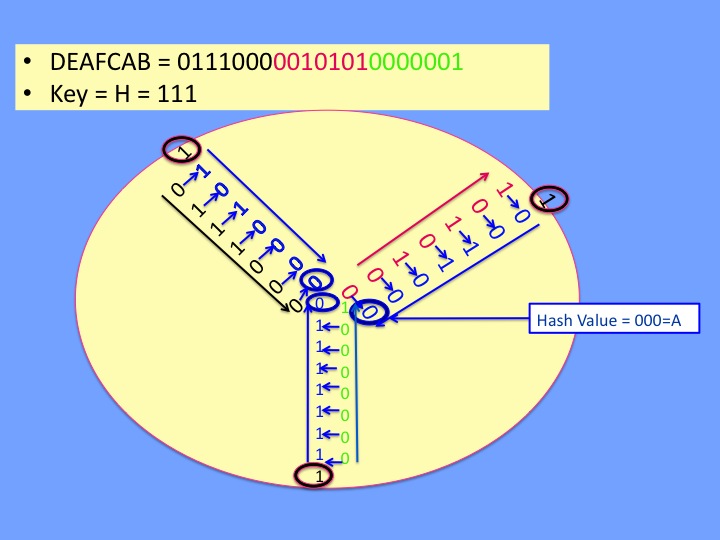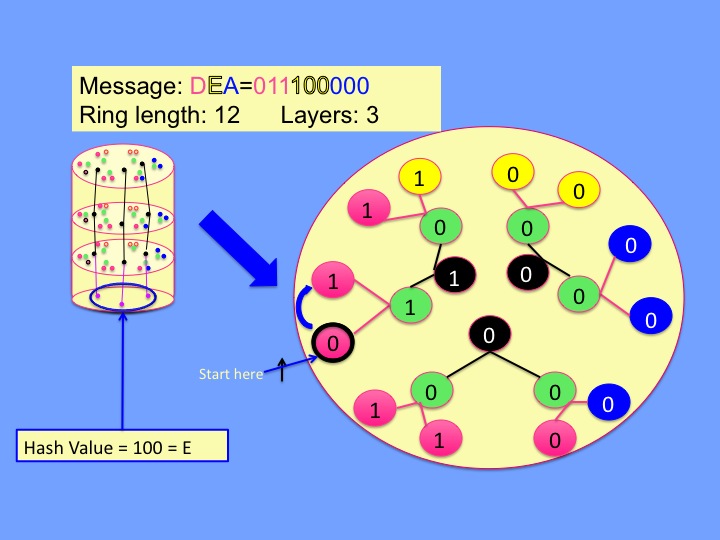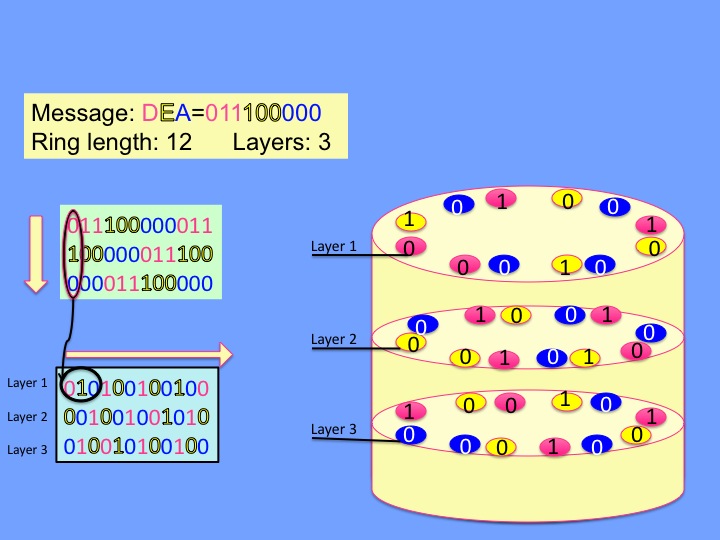Team:Davidson-Missouri Western/Our Models
From 2008.igem.org
Contents |
The Split Model
The Split model is identical to the ANDOR model except it uses a XOR logic gate as opposed to an alternative AND/OR scheme. This model also has a liner-type layout. This model is recommended if you're wishing to hash inputs where the probabilities of each character occuring are uniform. Therefore, for hashing aimed at password verifications, the Split model is highly recommended.
The Spoke Model
As opposed to a strictly linear setup, the Spoke model reverses the flow direction of the XOR gate on alternating lines of the setup. Although not a very efficient hash model in practice, this model has some interesting fractal characteristics that are interesting to explore mathematically when analyzing this model.
The Net Model
The Net model has a cylindrical setup in which the inputs are set up in a circular fashion. The values are hashed with their neighbor, with the final hash value resulting from the various intermediary XOR outputs trickling down the center of the cylinder. This model is more flexible than the other models in that you can manipulate the ring length(number of values on each circle). The stack size is also variable, however this has no impact on the actual efficiency of the hash model, only the ease in which the biologist implements it. This is a good model and recommened for short-length messages, specifically those less than 8 characters long. The efficiency of this model increases with the increase of the ring length, however a ring length higher than 223 is not recommended(due to time issues).
The Twist Model
The Twist model has the same cylindrical setup as the Net model, however uses a shift element to hopefully increase the efficiency of this setup and idea. The analysis of this model is still TBA.
 "
"



